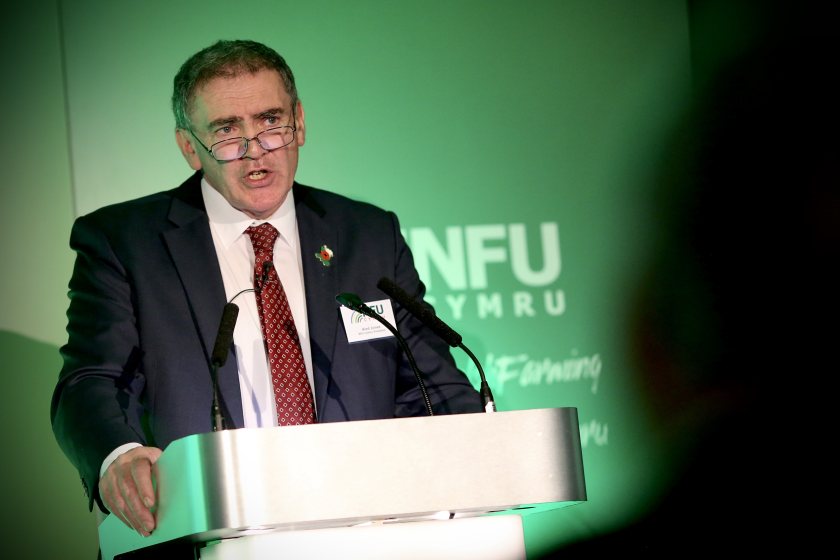
The government is facing a growing backlash from Wales' farming community over its proposed inheritance tax reforms, as NFU Cymru backs a cross-party call from MPs to delay the so-called “family farm tax.”
The House of Commons Welsh Affairs Committee has published its latest report, Farming in Wales in 2025: Challenges and Opportunities, following a months-long inquiry that heard oral and written evidence from farming bodies.
Among its key recommendations is that the government should postpone changes to agricultural property relief (APR) and business property relief (BPR) until a full impact assessment has been completed and reviewed by the committee.
The government is facing mounting anger across the farming community. More than 12,000 people have written to MPs, and farmers are planning a major tractor protest in London ahead of the chancellor’s autumn budget.
The proposed policy would cap inheritance tax relief for agricultural and business property at £1 million, with assets above that threshold receiving only 50% relief.
Industry leaders warn that this would force many families to sell land or break up long-established farms to meet large tax bills — a move they say could devastate rural economies and traditions built over generations.
NFU Cymru President Aled Jones said he was encouraged that the Welsh Affairs Committee had reflected many of the union’s concerns in its findings.
“I am heartened that so much of the detail presented by NFU Cymru in its evidence to the inquiry, highlighting the significant concerns of members across Wales, has been reflected in the committee’s report, its conclusions and recommendations,” he said.
Mr Jones described the real-world implications of the proposed reforms as “some of the most difficult and heart-rending accounts” shared by members over the past year, particularly among elderly farmers or those with terminal illnesses.
“Many of these farmers have arranged their affairs on the basis that their estates would not be subject to inheritance tax but now they stand to be disproportionately affected by this policy,” he explained. “They simply do not have the time left to make alternative succession arrangements.”
The committee’s report also questions the Treasury’s analysis of how many farms would be affected, warning that its figures may be “misleading” due to the lack of detailed, Wales-specific data.
Mr Jones said the absence of accurate information risks underestimating the number of family farms that could fall within the new tax thresholds. “I remain firmly of the view that far more farms will fall into the scope of this new tax than the Treasury claims,” he added.
NFU Cymru has backed the committee’s call for a delay to the reforms until a Wales-specific assessment is published and scrutinised. The union also supports a review of all available data on farm ownership in Wales to provide a clearer picture of how inheritance tax changes could affect the sector.
“I urge the UK government to heed this advice rather than hurtling headlong into a policy which we know gives rise to a range of negative and unintended consequences,” Mr Jones said.
The Welsh Affairs Committee’s report comes just two weeks before the chancellor’s autumn budget on 26 November, and its recommendations echo those made recently by the Environment, Food and Rural Affairs (EFRA) committee, which also called for a pause in the rollout of inheritance tax reforms.
Mr Jones praised the Welsh Affairs Committee for its rapid and united response. “What makes this report particularly powerful is the fact that a committee with a diverse, cross-party membership has been able to reach a unanimous view about the truly damaging impact of the inheritance tax policies on Wales’ family farms — and the need for a delay,” he said.
He added that MPs across parties had shown a clear understanding of the issue once they considered its real impact on ordinary farmers. “They have reached the view that a pause and review of the policy is needed to better understand its impact on farming families and to look at alternatives,” he said.
With the budget approaching, NFU Cymru has renewed its call for the chancellor to recognise the “uniqueness of Wales’ farming sector, its multi-generational nature and its importance to Wales’ culture and economy.”
Mr Jones said there must be “a pausing and reviewing of this policy to look at its unintended consequences and to consider some of the other proposals which have been put forward.”
Farmers now await the chancellor’s response, hoping the budget will bring clarity — and compassion — for the next generation of Welsh family farms.
